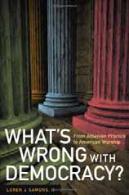Book Notices
Reviews
A. James Gregor, Mussolini’s Intellectuals: Fascist Social and Political Thought, Princeton University Press, Princeton, NJ, hardcover, 288 pp., $35.–

A. James Gregor, professor of political science at the University of California at Berkeley, is that rarity among scholars of Fascism: brilliant, learned, and above all objective. In Mussolini’s Intellectuals Gregor brings four decades of study of the ideology of Fascism to bear on the lives and thought of its leading thinkers. Where establishment academics have only seen clowns and villains, Gregor gives respectable attention to the “gifted intellectuals” (his words) who pioneered Fascist thought, including Giovanni Gentile, Ugo Spirito, Sergio Panunzio, Alfredo Rocco, and latter-day cult figure Julius Evola. This first chronological account of Mussolini’s thinkers is distinguished by its author’s verve and bite as well as by his judicious scholarship: Gregor’s chapter that dismisses the critic’s of Fascist ideology among Marxist, psychoanalysts, and liberals is a classic (and funny) demolition of leftist bias and pretensions.
Clarence Lusane, Hitler’s Black Victims, Routledge Press, New York and London 2002, paperback, 320 pp., $23.95

This study by an African-American history professor (American University) and journalist explores an increasingly trendy niche of Hitler-era victimology by describing and analyzing the treatment of full-blooded and mixed-blooded blacks in Germany and abroad. The title misleads, for author Lusane also mines German colonial history in Africa for the overblown (though not in his mind) 1904 “genocide” of the Hereros in Southwest Africa and other alleged misdeeds, without being able to show that any of them exceed similar practice by British, French, Belgian, and other colonial powers. Lusane, despite his lack of familiarity with German history and the German language, is more sensible and more balanced on the lot of blacks in Germany during the Third Reich, showing that despite their exclusion from the racial community, blacks were not singled out for persecution, and, while certain mulattoes born of rape or liaisons with foreign soldiers were sterilized, a fair number of those mix-breeds fought in the Wehrmacht and were even admitted to the Hitler Youth. Hitler’s Black Victims is especially valuable for its insights on African American experiences in 1930s Germany, throwing fascinating light on the pro-German leanings of black intellectual W.E.B. Du Bois as well as conventional accounts of the German (and American) reception of Olympian Jesse Owens and boxer Joe Louis.
Benjamin Heber Johnson, Revolution in Texas: How a Forgotten Rebellion and Its Bloody Suppression Turned Mexicans into Americans, Yale University Press, New Haven 2002, clothbound, 260 pp., $30.–

An enlightening account of a largely forgotten chapter in American history: a 1915 insurrection by Mexican guerrillas and resident Chicanos in southern Texas that resulted in the murders of numerous whites before being crushed by the Texas rangers and local posses. Johnson, an assistant professor of history at Southern Methodist, predictably enough devotes more attention and censure to the bloody white reprisals than to the Mexicans’ killings. The author also underrates the influence on the Mexican marauders of the Plan de San Diego, which was devised by revolutionaries south of the border and prescribed the killing of all “Anglo” males over sixteen as part of its scheme for unleashing a race war. Nonetheless, Revolution in Texas provides a valuable, and given today’s immigration situation, timely account of an incident that has been neglected in favor of Pancho Villa’s more episodic 1916 raids. The 1915 rebellion may have inspired the Zimmerman telegram (if it was not a British forgery), and, Johnson shows, its suppression was the direct impetus for the organization of the still influential League of United Latin American Citizens (LULAC).
Loren D. Samons II, What’s Wrong with Democracy? From Athenian Practice to American Worship, University of California Press, Berkeley, CA, 2004, hardcover, 327 pp., $27.50

Loren Samons, professor of classical studies at Boston University, takes deadly aim at the cult and taboo of democracy in twentieth century America by reminding of democracy’s serious shortcomings in its cradle, fifth century Athens. Samons reminds of the turbulence, corruption, imperialist aggression, and constant danger of oligarchy or mob rule that vitiated popular rule in Athens even at its apogee—and shortly helped reduce the city-state to a political backwater for the following two and a half millennia. Then Samons shows how democracy worship is at its pinnacle in today’s America, detailing the grim consequences of that for the nation’s present and future: devaluation of the constitutional republic devised by America’s founders, with its checks of the tyranny of the majority (or the majority’s puppeteers); expropriation of wealth and property by political majorities; uncritical embrace of the popular values of freedom, choice, diversity, and comfort at the expense of the nation-sustaining virtues of duty, discipline, self-sacrifice, and hardiness; and a universal glorification of plebeian coarseness. What’s Wrong with Democracy? further shines in demonstrating that democracies from Athens to America tend to be warlike, rather than peace-loving, thus debunking an old anti-German canard that today’s neocons have dusted off to justify their past and future aggressions against peaceable countries to be “democratized” by bullets, bombs, and missiles.
Anthony W. Marx, Faith in Nation: Exclusionary Origins of Nationalism, Oxford University Press, New York 2003, hardcover, 304 pp., $26.–

This analytic account of the rise of the European nation-state strikes a death blow to the liberal “Whig” theory of leftward “progress” in history by dispatching the myth that tolerance, inclusion, and a nascent democracy were central to the origins of early modern Britain, France, and Spain. Marx, now the president of Amherst College, establishes that the roots of mass political participation in these countries lie in the exclusionary and often intolerant policies of royal rulers in the sixteenth and seventeenth century, when Ferdinand and Isabella cleansed Spain of Jews and Moors, Henry VIII and his successors crushed English Catholicism, and France’s religious wars culminated in the expulsion of the Huguenots in 1685. Written in dense prose and in observance of the regnant academic political conventions, Faith in Nation’s demolition of longstanding establishment historical pieties makes it a pathbreaking revisionist work.
Bibliographic information about this document: The Revisionist 2(4) (2004), pp. 467f.
Other contributors to this document: n/a
Editor’s comments: n/a
